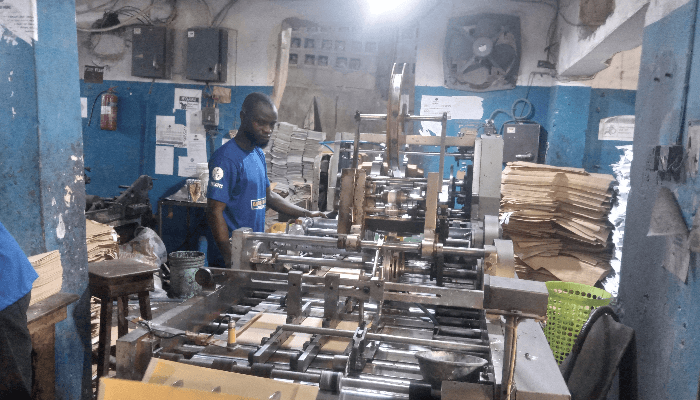Manufacturers input costs are rising the most in 10 years since the records began in 2014 as the FX crisis worsens, data from the Stanbic IBTC Purchasing Managers Index (PMI) shows.
Nigeria’s manufacturers have been battling rising operational costs amid high borrowing costs and low consumer spending.
“Price pressures intensified in the Nigerian private sector during February and were unprecedented in over a decade of data collection,” the report stated.
“Both input costs and output prices increased at the sharpest rates on record, with rising prices impacting demand,” the report said.
According to the report, input costs surged higher in February owing to exchange rate weakness which drove up material costs and higher energy costs.
FX availability and accessibility have remained challenging for manufacturers. Currently, it costs N1,600 to get one dollar from the Central Bank of Nigeria (CBN), while it costs around N1,615 in the black market
“The latest rise in overall input costs was by far the sharpest since the survey began in January 2014, with around 78 percent of respondents signalling an increase over the month.”
“As a result, rates of expansion in output and new orders slowed sharply over the month, while employment decreased for the first time in ten months.”
The report stated that business activity dropped to the lowest since December 2023. The headline index declined to 51 points in February from 54.5 in January. Readings above 50.0 signal an improvement in business conditions, while those below show deterioration.
“The improvement in business conditions was the weakest since the recovery in the private sector began last December,” the report noted.
The PMI index, which measures the performance of the private sector, is derived from a survey of 400 companies from agriculture, manufacturing, services, construction and retail sectors.
It is a composite index based on five individual indexes with the following weights: new orders (30 per cent), output (25 percent), employment (20 per cent), suppliers’ delivery times (15 per cent), and stock of items purchased (10 percent), with the delivery times index inverted so that it moves in a comparable direction.
Also, the report stated that output price inflation hit a fresh record high in February as firms passed through rising input costs to their customers.
“Steep price pressures acted to limit new orders in the private sector,” the report said.
It added that although new business increased for the third successive month amid some positive signs for underlying demand, the rate of expansion slowed sharply and was the weakest in this sequence.
Africa’s most populous country has been grappling with double-digit annual inflation since 2016, with the consumer price index hitting 28.9 percent in December, according to the National Bureau of Statistics (NBS).
Growth in the manufacturing sector in 2023 slowed to 1.4 percent, lower than 2.45 percent it grew in 2022. In the fourth quarter of 2023, it slowed to 1.38 percent, lower than the same quarter of 2022 and higher than the preceding quarter by 1.46 percent points and 0.90 percent respectively.





